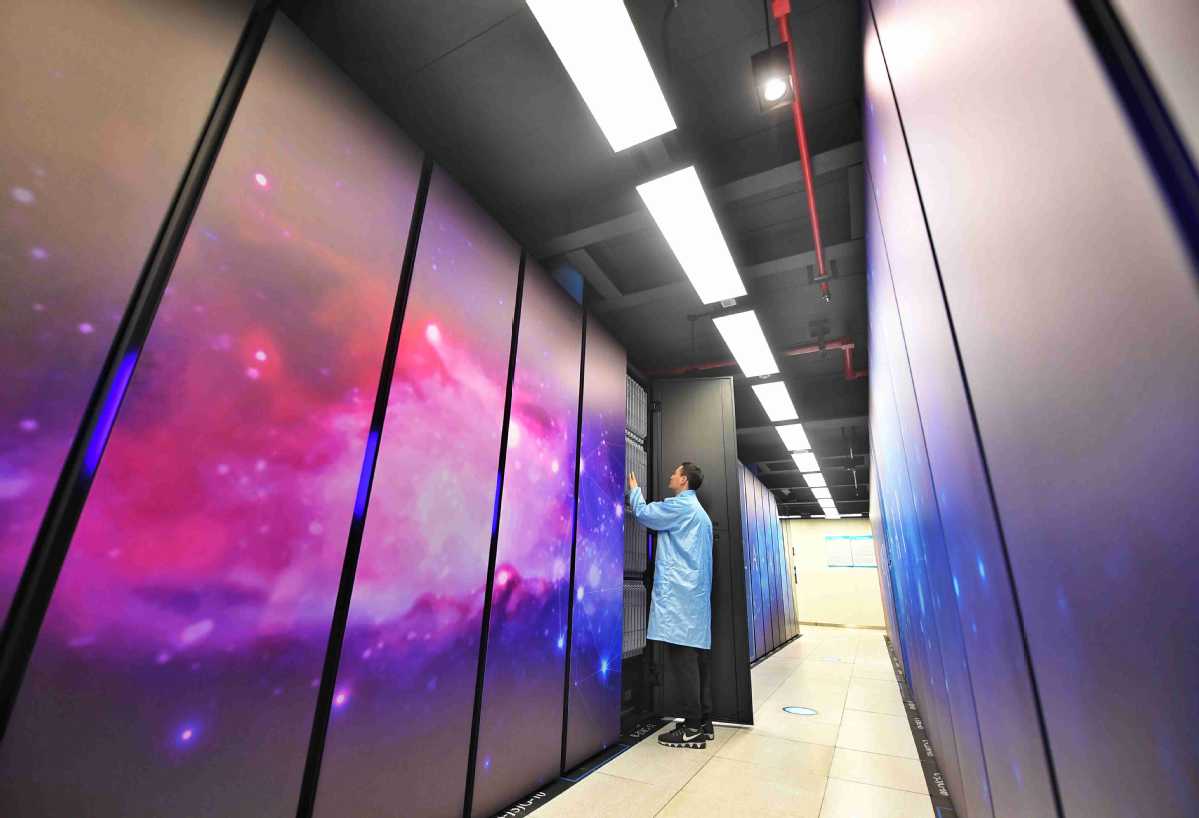Digital thrust will inject impetus to growth


Local push
Meanwhile, local governments are intensifying efforts to promote the development of the digital economy, in accordance with the country's aim to raise the proportion of the added value of core digital economy industries in its GDP to 10 percent in 2025, from 7.8 percent in 2020, as per China's 14th Five-Year Plan (2021-25).
Zhejiang province is taking solid steps to boost the in-depth integration of internet, big data and AI with the real economy, and promote digital transformation of manufacturing, agriculture and services sectors, according to a document released by the National Development and Reform Commission, the country's top economic regulator, in March.
It said the province ranked first in the country last year in the proportion of its added value of the digital economy in its GDP, and overall digitalization.
In 2022, the added value of the digital economy-related core industries in Zhejiang reached 897.7 billion yuan, accounting for 11.6 percent of its GDP.
Shanghai has also mapped out a plan to promote digital transformation and build an international digital city with global influence. It will improve the output of its core industries in the digital economy to 18 percent of the city's GDP in the next five years, up from 15 percent last year.
The city will ramp up efforts to construct digital industrial clusters in the fields of integrated circuits and AI, and aim to become a world-leading metropolis with digital infrastructure and a forerunner of the digital economy.
The capital Beijing is also taking measures to boost the application of digital technologies in various industries. The city's digital economy has continued to expand over the past five years, and the added value of the digital economy accounted for around 42 percent of the city's GDP in 2022.
Zhou Hongyi, founder of cybersecurity company 360 Security Group, emphasized the significance of pushing forward the digital transformation of micro, small and medium-sized enterprises, as they face mounting pressure from a shortage of capital, talent and technology.
Against the backdrop of potential risks from decoupling, more coordinated efforts are required to resolve bottlenecks and increase investments in basic research and strategic forward-looking technologies, said Chen Duan, director of the Digital Economy Integration Innovation Development Center at the Central University of Finance and Economics.
"We should expedite the translation and application of key scientific and technological breakthroughs, and support leading high-tech companies, which play a critical part in technological innovation, to pour more capital into state-of-the-art technologies to better serve the country's development strategy," Chen said.




































